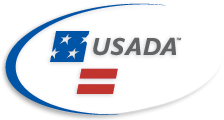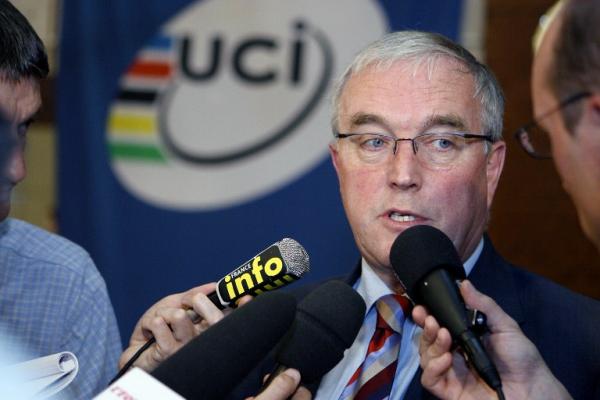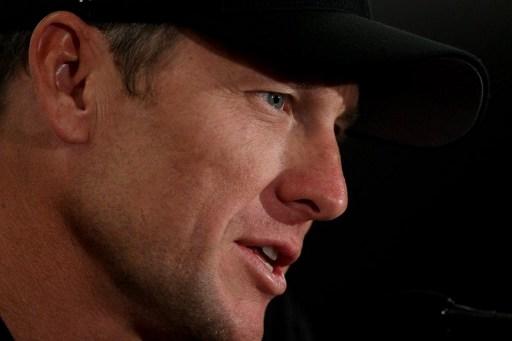Judge issues stinging criticism of USADA in Armstrong case
Leaves door open for action if USADA violates rules



Texas district court judge Sam Sparks may have sided with the United States Anti-Doping Agency (USADA) by agreeing to dismiss the case against it by Lance Armstrong's attorneys, but in his full decision Sparks was highly critical of the agency and the lack of cooperation between the various bodies tasked with running the sport of cycling.
Sparks today dismissed the claims of Armstrong's legal team, which challenged USADA's right to bring anti-doping rule violations against him, and to force him into arbitration without providing its full dossier of evidence against him beforehand. That evidence includes testimony of multiple witnesses who claim to have seen Armstrong doping and who received doping products from him. USADA kept the identities of them secret in order to protect them from intimidation, it said.
Armstrong's attorneys argued that the lack of information and USADA's procedures were a violation of his right to due process, a claim the judge dismissed outright.
Yet even though the judge refused to give the federal court system jurisdiction over the case, he left the door open for further action against USADA should it not abide by its own rules and provide Armstrong and his team with all of its evidence against him in advance of any arbitration hearing by dismissing the arguments "without prejudice".
In the opinion, Sparks takes USADA to task, stating, "there are troubling aspects of this case, not least of which is USADA's apparent single-minded determination to force Armstrong to arbitrate the charges against him, in direct conflict with UCI's equally evident desire not to proceed against him."
In another note, Sparks writes, "Among the Court's concerns is the fact that USADA has targeted Armstrong for prosecution many years after his alleged doping violations occurred, and intends to consolidate his case with those of several other alleged offenders, including - incredibly - several over whom USA Cycling and USOC apparently have no authority whatsoever. Further, if Armstrong's allegations are true, and USADA is promising lesser sanctions against other allegedly offending riders in exchange for their testimony against Armstrong, it is difficult to avoid the conclusion that USADA is motivated more by politics and a desire for media attention than faithful adherence to its obligations to USOC."
USADA CEO Travis Tygart said that while not at issue in the lawsuit, the evidence was such that, "we are confident that had the judge heard this evidence, he would have seen that USADA's only motive in this case is to rid sport of anyone in the sport system who uses their position to provide performance-enhancing drugs for athletes to use in order to cheat to win."
The latest race content, interviews, features, reviews and expert buying guides, direct to your inbox!
Sparks also noted the apparent conflict between USADA and the UCI, which claims it should be the body to decide if anti-doping rule violations should be issued in this case, and USA Cycling who came out in support of the UCI's right to argue this point.
"As mystifying as USADA's election to proceed at this date and in this manner may be, it is equally perplexing that these three national and international bodies are apparently unable to work together to accomplish their shared goal - the regulation and promotion of cycling. However, if these bodies wish to damage the image of their sport through bitter infighting, they will have to do so without the involvement of the United States courts," Sparks wrote.
The decision agreed with Armstrong's argument that he was not provided with an adequate charging document.
"The Court noted during the August 10 hearing, this "charging document" is so vague and unhelpful it would not pass muster in any court in the United States. The Court is assured, however, that Armstrong will be given adequate notice of the specific allegations against him in a timely fashion prior to arbitration, and proceeds under the assumption this will actually occur.
"Indeed, the Court has serious doubts whether USADA' s arbitration procedures would comport with due process if Armstrong were not to receive such notice sufficiently in advance of his arbitration to allow him to prepare a defense."
After noting that USADA's own procedures allow for a pre-hearing and for adequate time for evidence to be shared, Sparks issued a stern warning to the agency: "As noted above, however, the Court dismisses Armstrong's claims without prejudice. If it should come to pass that Armstrong does not actually receive adequate notice sufficiently in advance of the arbitration hearing, and it is
brought to this Court's attention in an appropriate manner, USADA is unlikely to appreciate the result."
Although the court's decision is a setback for the team, Armstrong attorney Tim Herman stated today, "Judge Sparks' opinion confirms what we have said all along. Among other things, the Court confirmed that 'USADA's conduct raises serious questions about whether its real interest in charging Armstrong is to combat doping, or if it is acting according to less noble motives'."
The statement did not indicate what the team's next action will be. The USADA set an August 23 deadline to either choose arbitration or accept a lifetime ban for Armstrong, but there could be further arguments over the jurisdiction of USADA versus the UCI in a court of arbitration such as CAS.
"UCI has asserted that it has exclusive authority to decide whether charges should be brought in this case, and has directed USADA not to proceed further. We are reviewing the Court's lengthy opinion and considering Mr. Armstrong's options at this point," Herman said.

Laura Weislo has been with Cyclingnews since 2006 after making a switch from a career in science. As Managing Editor, she coordinates coverage for North American events and global news. As former elite-level road racer who dabbled in cyclo-cross and track, Laura has a passion for all three disciplines. When not working she likes to go camping and explore lesser traveled roads, paths and gravel tracks. Laura specialises in covering doping, anti-doping, UCI governance and performing data analysis.